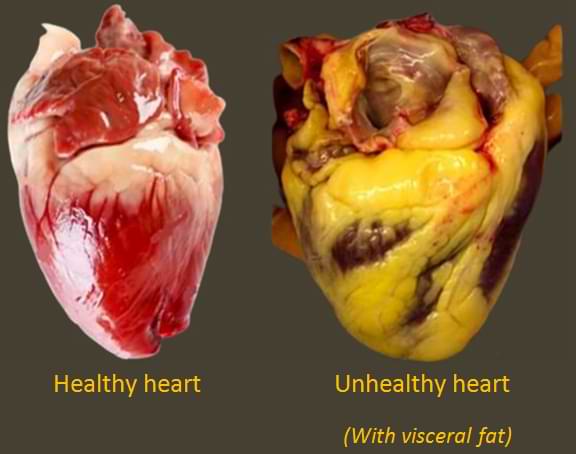
Wellness: The New Generational Wealth
Are You Truly Investing in Your Child’s Future?
Wellness isn’t just about personal health—it’s about shaping the next generation. Many parents prioritize their own well-being while overlooking the importance of instilling healthy habits in their children.
The reality is, the same benefits we gain from wellness—lifting weights, staying active, getting enough sleep, and eating healthy—are the same benefits children experience when they engage in a wellness-focused lifestyle. However, many children today are more sedentary, consuming more processed foods, and getting less sleep than ever before. If these habits continue unchecked, we are setting them up for lifestyle diseases, weakened immunity, and poor mental health in adulthood.
📌 Why Childhood and Teenage Years Matter for Long-Term Health
One critical but often overlooked aspect of childhood wellness is bone health. Research shows that peak bone mass is largely developed during childhood and adolescence, especially in girls. If a child doesn’t develop strong bones during their teenage years, they are at a much higher risk of osteoporosis and fractures later in life, particularly as hormonal changes during perimenopause and menopause accelerate bone loss (Weaver et al., 2016).
Studies also confirm that engaging in high-impact activities like tennis, running, and resistance training significantly improves bone density and reduces the risk of osteoporosis (Farr et al., 2014). This means that movement and exercise should be a priority for children—not just for sports, but for lifelong health.
The Parent’s Role: Wellness as an Inheritance
As a parent, you are your child’s first teacher—and that includes teaching wellness. The habits they develop in childhood will shape their lifelong relationship with food, movement, stress management, and overall health.
Here are some key areas of wellness that every parent should focus on:
✅ Healthy Eating – Children need adequate calcium, vitamin D, and protein for proper growth and development (Micha et al., 2017). If they grow up accustomed to processed foods, sugary drinks, and fast food, these eating patterns will likely follow them into adulthood.
✅ Prioritizing Sleep – Studies show that poor sleep is linked to weakened immunity, obesity, and poor academic performance in children (Hirshkowitz et al., 2015). Encourage your child to have consistent bedtimes and a screen-free wind-down routine to improve their sleep quality.
✅ Limiting Screen Time – Excessive time on devices is associated with obesity, poor mental health, and delayed cognitive development (Saunders & Vallance, 2017). Parents should establish clear screen-time boundaries and encourage outdoor activities instead.
✅ Exercise & Strength Training – Regular physical activity is essential for building muscle strength, cardiovascular health, and mental resilience. Studies have shown that children who engage in sports or strength-based activities develop better physical and emotional regulation skills (Lakes & Hoyt, 2004).
✅ Stress Management – Children need to learn to cope with setbacks, rejection, and failure from a young age. Teaching them breathing exercises, journaling, and constructive problem-solving can equip them with the tools to handle stress better as they grow.
✅ Sexual Health & Hygiene – Many parents shy away from these conversations, but teaching children about bodily changes, hygiene, and safe choices is a crucial part of overall wellness.
Breaking Generational Curses: Wellness as a Lifestyle Shift
Too often, families unknowingly pass down lifestyle habits that contribute to chronic health issues. If you examine families struggling with diabetes, arthritis, high blood pressure, and other preventable diseases, you’ll see a common pattern: children inherit not only genetic predispositions but also the same unhealthy dietary and lifestyle choices that contributed to their parents’ conditions (Birch & Ventura, 2009).
Breaking generational curses isn’t just spiritual—it’s also about lifestyle choices.
For example, a daughter is likely to arrange her kitchen, prepare meals, and structure her diet the way her mother did. If she grows up in a household where deep-fried foods, excessive sugar, and processed meals are the norm, she will likely carry these patterns into her own family, unknowingly continuing the cycle of poor health. Likewise, a son is likely to model his father’s approach to fitness, stress management, and overall well-being.
If we want to change the trajectory of future generations, intentional lifestyle changes must start now.
Practical Steps for Parents: Raising a Healthier Generation
Here are some practical ways to integrate wellness into your child’s daily life:
1️⃣ Encourage High-Impact Sports
Activities like tennis, soccer, gymnastics, and martial arts help improve muscle strength, coordination, and bone health. Research shows that high-impact exercises during youth can significantly reduce the risk of osteoporosis later in life (Farr et al., 2014).
2️⃣ Promote Manual Work & Active Play
Encourage physical activity through chores, gardening, or outdoor games. Children don’t need to be in a gym to stay active—helping with household tasks and playing outside also contribute to fitness.
3️⃣ Make Sleep a Priority
Set a consistent bedtime routine and limit screen exposure before bed. Poor sleep is linked to weakened immunity, poor academic performance, and mood swings (Hirshkowitz et al., 2015).
4️⃣ Set Limits on Technology Use
Not all technology is bad, but excessive screen time can be detrimental to physical and mental health (Saunders & Vallance, 2017). Encourage reading, board games, outdoor play, and creative hobbies instead of relying on digital entertainment.
5️⃣ Lead by Example
Children learn more from what they see than what they are told. If parents eat unhealthy foods while telling their children to eat vegetables, the child will adopt what they observe, not what they hear. If parents prioritize exercise, sleep, and emotional regulation, children will naturally follow suit.
Parenting Starts with YOU
Many parents expect teachers or schools to take responsibility for their child’s wellness. But real transformation starts at home.
Take Lionel Messi, for example—his father has been his manager since day one, actively nurturing his talent and guiding him to greatness. Parenting is an active role, not a passive one.
Your child is watching. The habits you build today will shape their future. Wellness isn’t just about you—it’s about the next generation.
References
- Birch LL, Ventura AK. (2009). Preventing childhood obesity: What works? International Journal of Obesity.
- Farr JN, Laddu DR, et al. (2014). Physical activity during growth and young adulthood and its association with bone mineral density in later life. Journal of Bone and Mineral Research.
- Hirshkowitz M, Whiton K, et al. (2015). National Sleep Foundation’s updated sleep duration recommendations. Sleep Health Journal.
- Lakes KD, Hoyt WT. (2004). Promoting Self-Regulation Through School-Based Martial Arts Training. Journal of Applied Developmental Psychology.
- Micha R, Peñalvo JL, et al. (2017). Association Between Dietary Factors and Mortality From Cardiovascular Diseases, Stroke, and Type 2 Diabetes in the United States. JAMA.
- Saunders TJ, Vallance JK. (2017). Screen Time and Health Indicators Among Children and Youth: Current Evidence, Limitations and Future Directions. Applied Physiology, Nutrition, and Metabolism.
- Weaver CM, Gordon CM, Janz KF, et al. (2016). The National Osteoporosis Foundation’s Position on Peak Bone Mass Development and Lifestyle Factors. Osteoporosis International.
#GenerationalWellness #Parenting #HolisticHealth #ChildWellness #BreakingCurses #BoneHealth #HealthyFamilies #WellnessForKids #ActiveLifestyle


